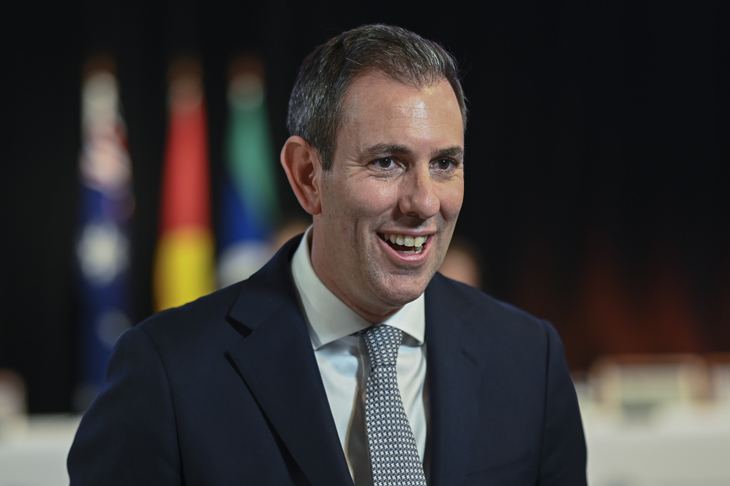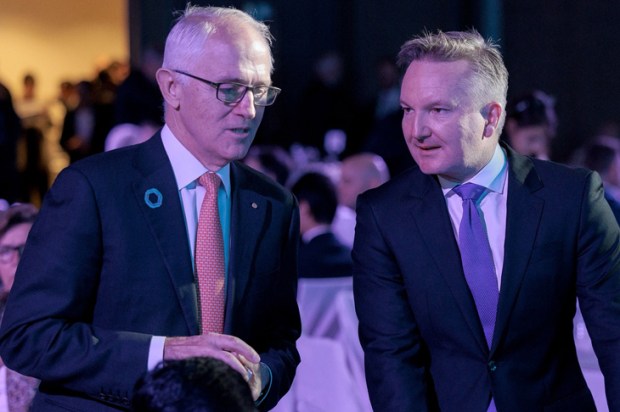Call me cynical, but it sure looked like a lot of pitch-rolling, preparing the ground, paving the way – whatever term you want to use – by Treasurer, Jim Chalmers, in preparation for a decision to ditch the Stage 3 tax cuts, certainly in their current legislated form. All that stuff about a worsening global outlook, the demand for higher spending, inflation and cost of living pressures.
Joining the chorus was Finance Minister, Katy Gallagher, as well as Assistant Treasurer, Stephen Jones (who?). On board with ‘the ditch the Stage 3 tax cuts’ bandwagon were the Greens – no surprises there. Apart from some asinine remark by Teals parliamentarian, Kylea Tink, that the tax cuts were a ‘distraction’, we don’t know what their position is.
Most media commentators supported abandoning Stage 3. Indeed, it came close to these commentators running a campaign to ensure this outcome. (Whatever happened to impartial journalism?)
Useful idiots are always useful at this stage. So former Treasury secretary and Reserve Bank governor – and well-known lefty – Bernie Fraser declared that the tax cuts must be abandoned in favour of higher government spending. Former chair of the Australian Competition and Consumer Commission, Rod Sims – another well-known lefty – made a similar point. And, of course, the current governor of the Reserve Bank was on hand to lend support.
There were two itsy-bitsy – ok, major –problems for the Labor government ditching the Stage 3 tax cuts: Labor had voted for them when they went through parliament and Labor had been adamant that they would stick with them in the event of winning the election.
In July last year, the leader of the opposition, Anthony Albanese and the shadow treasury spokesman, Jim Chalmers, released the following statement: ‘An Albanese Labor government will deliver the same legislated tax relief to more than nine million Australians as the Morrison government… Labor in government will uphold the legislated changes to personal income taxes… providing certainty and clarity to Australian working families.’
Then during the election campaign, Albanese declared that, ‘I want to make sure we don’t create circumstances whereby there’s a view that we’re going to do things that we’re not going to. We are not going to interfere with the legislated tax cuts.’
Let’s not forget here that the Stage 3 tax cuts don’t start until July 2024, nearly two years away. So you might wonder what all the current fuss is about. But here’s the thing: the cuts are already in the Budget forward estimates (over four years) and so they affect the projected fiscal balances. Ditch the tax cuts and all of a sudden the government thinks there is more money to spend.
All up, the Stage 3 tax cuts subtract around $20 billion per annum from revenue – a considerable sum even in these days of inflated revenue and tax takes. But these tax cuts are actually an important and rare instance of economic reform in which the improved incentives for workers will generate significant economic dividends.
Recall that the Stage 3 tax cuts involve a flat rate of tax for income between $45,000 and $200,000 per year. And instead of the top marginal tax rate of 45 per cent (mind you, the Medicare Levy of 2 per cent is on top of that) cutting in at $180,000 year, this is lifted to $200,000. (It is many years since the top income cut-off point has been raised; by rights, it should be closer to $250,000.)
What the Stage 3 tax cuts achieve is a massive simplification of the income tax structure, making it easy for people to estimate the returns from working harder and longer. By contrast, the earlier stages involved some complex arrangements – the so-called low- and middle-income tax offset or ‘lamington’ – that are scrapped in this final stage. The offset device was used to ensure that the tax cuts were restricted to low- and middle-income earners.
As for the stupid proposition that the Stage 3 tax cuts favour high-income earners, that would be because high-income earners pay nearly all the tax. You can’t give a tax cut to someone who doesn’t pay any tax in the first place. The top 10 per cent of income earners pay around 50 per cent of all tax revenue.
These facts didn’t prevent dopey Greens leader, Adam Bandt, from telling us that, ‘if Labor wants to make the case that we should still be giving politicians and billionaires a tax break, that’s a matter for them. The public have already made up their minds: no more tax cuts for the wealthy.’ (Sure, buddy.)
As for Jim Chalmers banging on about the budget pressures he faces, in point of fact, no other treasurer has ever faced the fiscal assistance associated with having the highest terms of trade (the ratio of the price of exports to imports) in history.
He is swimming in revenue as the resource companies, including those dreaded ones exporting fossil fuels, are pumping up the revenue side of the budget through the payment of company tax. The fact that the economy is running at close to full employment – something for which Jim can take no credit – is also restricting the payment side of the budget.
Indeed, it was only a few weeks ago that Jim was able to announce the final outcome of the 2021-22 budget. Instead of a deficit of around $80 billion, the budget ended up in deficit by $32 billion – an improvement close to $50 billion. This is the biggest budget turnaround ever recorded and yet Chalmers expects us to feel sorry for him.
What it does demonstrate is that he is not the man to be standing up to the demands of the big-spending ministers. Let’s not forget here that Jim is from the Right, but in order to be leader of the Labor party, after Albo, he will have to curry favour with the Left. Saying no to those influential ministers from the Left is not an obvious way to secure their support down the track.
Was it really that surprising that Albo stepped in to kill off Jim’s attempt to ditch the tax cuts, at least at this stage? He knows that breaking a big campaign promise like that is electoral poison and he is not prepared to drink from that cup. He also knows that the budgetary pressures might just bring some of the overly ambitious spending plans of some of his overly ambitious ministers into line. That’s not a bad personal outcome for him.
Got something to add? Join the discussion and comment below.
Get 10 issues for just $10
Subscribe to The Spectator Australia today for the next 10 magazine issues, plus full online access, for just $10.
You might disagree with half of it, but you’ll enjoy reading all of it. Try your first month for free, then just $2 a week for the remainder of your first year.














Comments
Don't miss out
Join the conversation with other Spectator Australia readers. Subscribe to leave a comment.
SUBSCRIBEAlready a subscriber? Log in